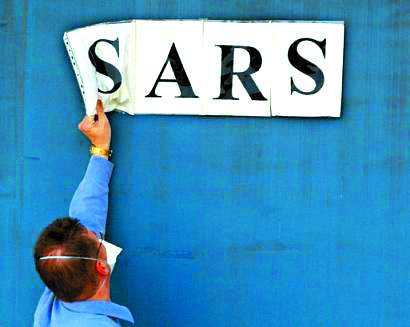Why Is the Pessimistic View on Chinese Economy Wrong?

Since China has shown strong mobilization in fighting against an epidemic, not to mention the great unity of the Chinese people today, China is now rebooting its economic engine across the country. So, the rest months of this year are enough for the country to catch up the growth goal.
An opinion article with the headline “China Is the Real Sick Man of Asia” published on the Wall Street Journal on February 3 left the whole world flabbergasted. It is abundantly clear from this op-ed article that how some elites in the United States are gloating over the abrupt halt of China’s economy due to the outbreak of the contagious novel coronavirus (COVID-19) during the Chinese New Year.
The outbreak of the coronavirus undoubtedly has a negative impact on China. Consequently, there is a rising concern at home and abroad that whether the outbreak would lead to a setback for China’s economic growth and further cause irreparable harm to global economic growth in the long term. There were even moments of panic in the international financial market over past weeks.
But if we take a look at China’s nationwide counter-epidemic efforts, the country’s intense work in preparation for resuming production of manufacture, and the robust rebound in its economy after the epidemic of severe acute respiratory syndrome (SARS) ended in 2003, as well as China’s quick economic recovery from disasters in history, we have every reason to keep confident that the outbreak of COVID-19 will not reverse China’s economic growth.
Still promising for 2020
Despite the SARS outbreak, the year of 2003 witnessed an even higher growth rate than the previous year and was followed by growth acceleration from 2004 to 2007 in China. Given that China’s counter-epidemic performance this time is far better than that of 2003, on what grounds are some market players overly pessimistic about China?
 The outbreak of SARS in 2003 did not drag down China’s growth rate, which was partly attributed to the favorable stage of the global economic cycle at that time, and partly to the adequate reform measures by the Chinese Government and solidarity of the Chinese people in an effort to counter negative impact of SARS. Similarly, Brazil’s economy recovered quickly after the outbreak of the Zika. One of the reasons why the Zika epidemic did not worsen Brazil’s economy in 2016 was that the Rio de Janeiro Olympics, held for the first time on the South American continent, prominently perked up the Brazilian people, hence a boost to Brazil’s economy. Since China has shown strong mobilization in fighting against an epidemic, not to mention the great unity of the Chinese people today, China is now rebooting its economic engine across the country. So, the rest months of this year are enough for the country to catch up the growth goal.
The outbreak of SARS in 2003 did not drag down China’s growth rate, which was partly attributed to the favorable stage of the global economic cycle at that time, and partly to the adequate reform measures by the Chinese Government and solidarity of the Chinese people in an effort to counter negative impact of SARS. Similarly, Brazil’s economy recovered quickly after the outbreak of the Zika. One of the reasons why the Zika epidemic did not worsen Brazil’s economy in 2016 was that the Rio de Janeiro Olympics, held for the first time on the South American continent, prominently perked up the Brazilian people, hence a boost to Brazil’s economy. Since China has shown strong mobilization in fighting against an epidemic, not to mention the great unity of the Chinese people today, China is now rebooting its economic engine across the country. So, the rest months of this year are enough for the country to catch up the growth goal.
The spread of the novel coronavirus coincided with the Chinese New Year holiday, giving a blow to consumption sectors such as tourism, catering, and entertainment. Meanwhile, many factories across the country had closed temporarily for holiday, which softens the impact of the outbreak on manufacture. Furthermore, China has taken strict measures to counter the epidemic and control the number of infected cases. Therefore, the outbreak of novel coronavirus is quickly under effective control and the economy starts moving out of the dormancy at the same time.
Moreover, the 2003 SARS eventually promoted the growth of the new-born e-commerce, which paved the way for China to become the largest e-commerce market in the world today. Under current circumstance, the coronavirus outbreak might force Chinese to adopt new forms of business and services.
Innovations to counter the outbreak
Imagine what would happen if a serious emergency occurred in a country with a vast number of energetic enterprises and market players, sound infrastructure, supporting industrial systems and public services. The emergency may help the country correct its flaws and promote its reform.
Apparently, the coronavirus outbreak has brought innovations most in medical services. There is no doubt that Chinese scientists will research new drugs and treatment methods to fight against the virus. In addition, public management, particularly public health services, has been enormously improved. For example, new medical facilities have been built. Above all, various innovations are popping up, which will enhance efficiency.
 We have also seen the government is encouraging enterprises to adapt themselves to the emergency situation with taking new forms of business. Unsurprisingly, catering has been the worst hit at the beginning of the coronavirus outbreak. However, provided with advanced e-commerce and resilient labor market, new forms of business combined with flexible labor force have emerged. To be specific, almost all e-commerce giants in China have released the “employees sharing” plan, which aims to help those who might face unemployment due to closure of stores and restaurants. They are recruited as temporary employees for e-commerce platforms in many cities in the country. The mutual help measure shows the solidarity of consuming business in an effort to combat the outbreak.
We have also seen the government is encouraging enterprises to adapt themselves to the emergency situation with taking new forms of business. Unsurprisingly, catering has been the worst hit at the beginning of the coronavirus outbreak. However, provided with advanced e-commerce and resilient labor market, new forms of business combined with flexible labor force have emerged. To be specific, almost all e-commerce giants in China have released the “employees sharing” plan, which aims to help those who might face unemployment due to closure of stores and restaurants. They are recruited as temporary employees for e-commerce platforms in many cities in the country. The mutual help measure shows the solidarity of consuming business in an effort to combat the outbreak.
Not only are these innovations offsetting the negative impact of the outbreak, they are also creating growth impetus which will probably go beyond China. On the other hand, China has showed superhigh efficiency in its nationwide efforts against the coronavirus, which can be best exemplified by the construction of Huoshenshan and Leishenshan hospitals within 10 days. This will surely help China earn a better reputation in overseas markets, bringing a huge amount of potential property and business opportunities.
Favorable policies to help SMEs
A country’s economic vitality is often based on small- and medium-sized enterprises (SME). To assess how the economic climate will recover from the outbreak, we find it necessary to observe China’s support to SMEs. It is evident that SMEs are vulnerable to such an emergency. How SMEs are doing, to a large extent, will determine China’s economic outlook after the end of the epidemic.
Both the central and local governments have issued a package of favorable policies to help SMEs overcome the hardship. If we take a closer look on these policies, we can find that they are tailor-made and considerate for SMEs. That is why we believe China’s post-epidemic economic growth will be feasible.
 Take subsidies on logistics for example, transportation in some areas has almost paralyzed due to the coronavirus outbreak, leading to soaring delivery costs. In face of the difficulty, governments at all levels have taken steps to subsidize logistics industry, which can be regarded as the right prescription to related enterprises. Another example is the financial support, including subsidies in rent, utilities and employee’s insurance, which will ease burdens on SMEs in the hard time.
Take subsidies on logistics for example, transportation in some areas has almost paralyzed due to the coronavirus outbreak, leading to soaring delivery costs. In face of the difficulty, governments at all levels have taken steps to subsidize logistics industry, which can be regarded as the right prescription to related enterprises. Another example is the financial support, including subsidies in rent, utilities and employee’s insurance, which will ease burdens on SMEs in the hard time.
The Chinese Government’s leverage to earmark funds for small- and medium-sized enterprises suggests that it still has much leeway to maintain steady growth. An upswing in China’s economy is very likely to come soon.
Mei Xinyu is a researcher at the Chinese Academy of International Trade and Economic Cooperation under Ministry of Commerce of China.
Translator: Liu Xiaomin
 Facebook
Facebook
 Twitter
Twitter
 Linkedin
Linkedin
 Google +
Google +










